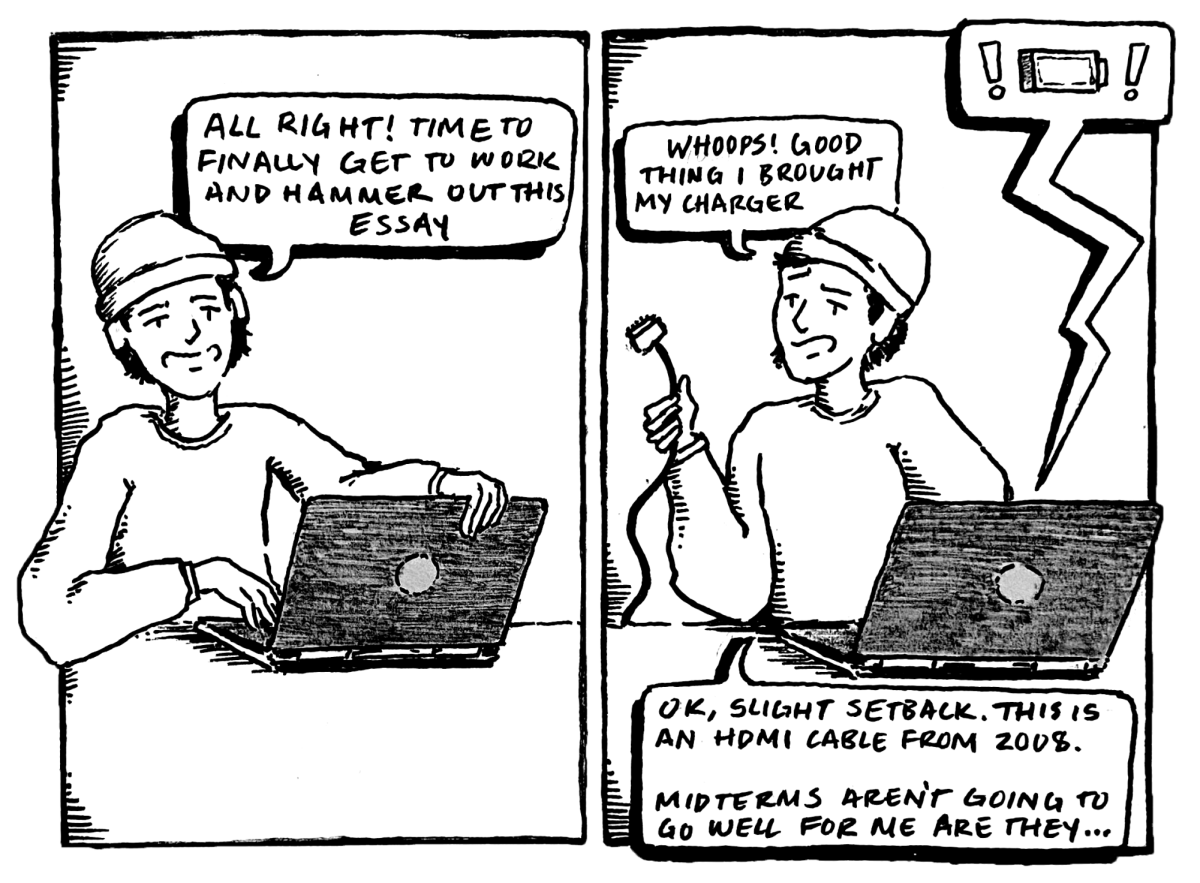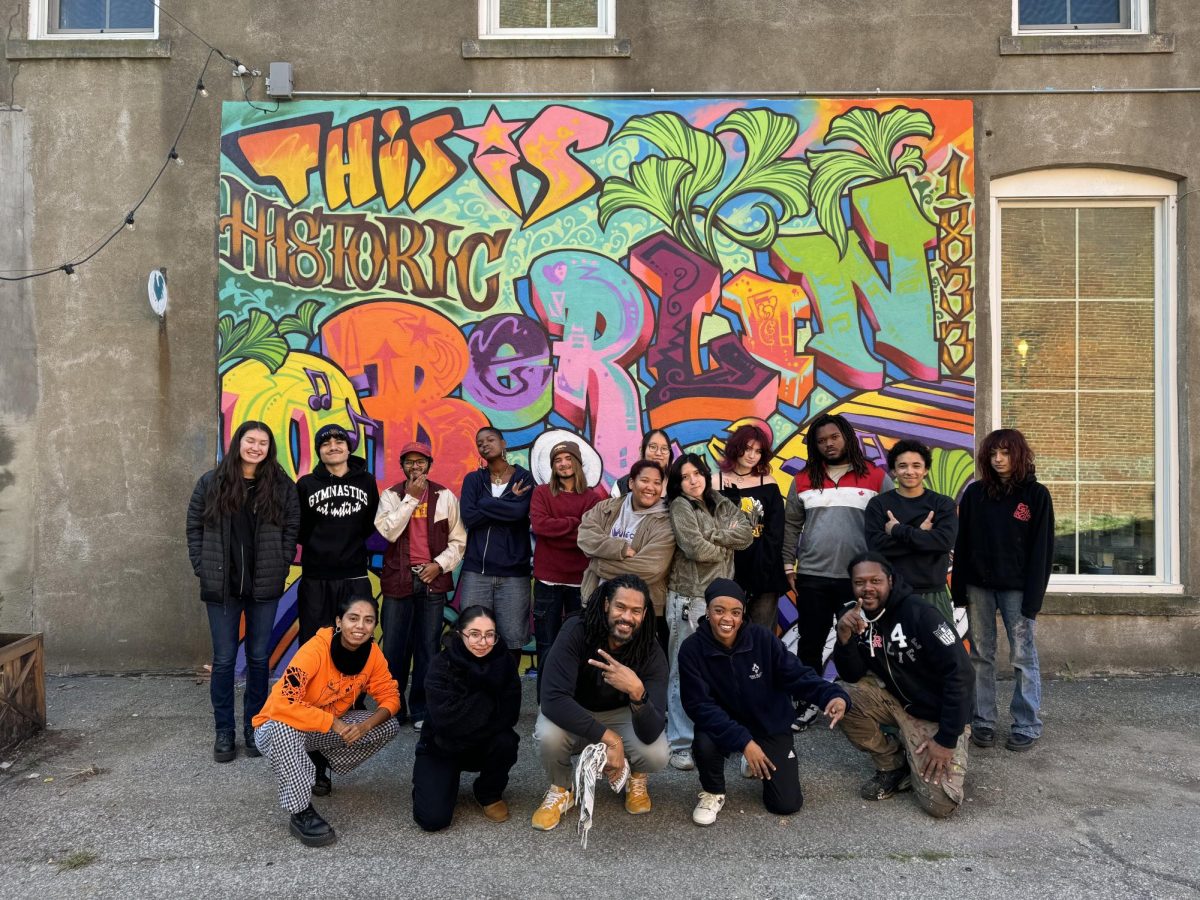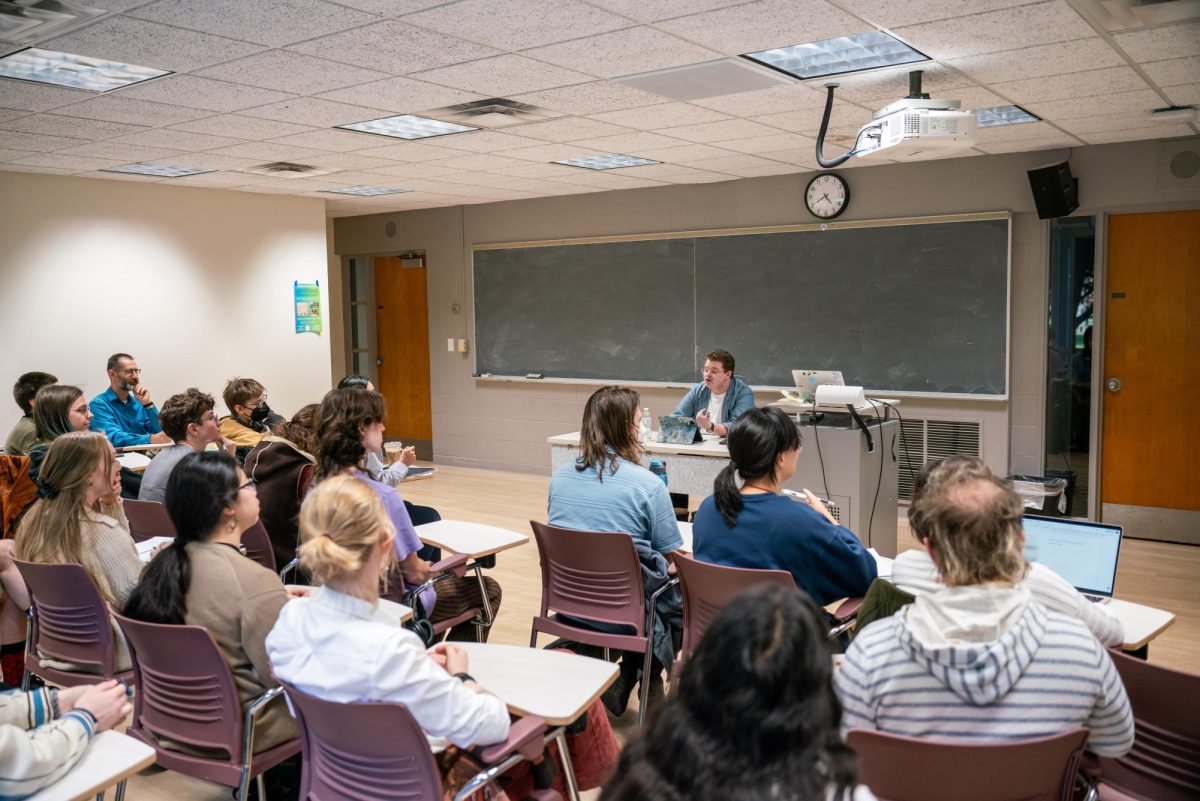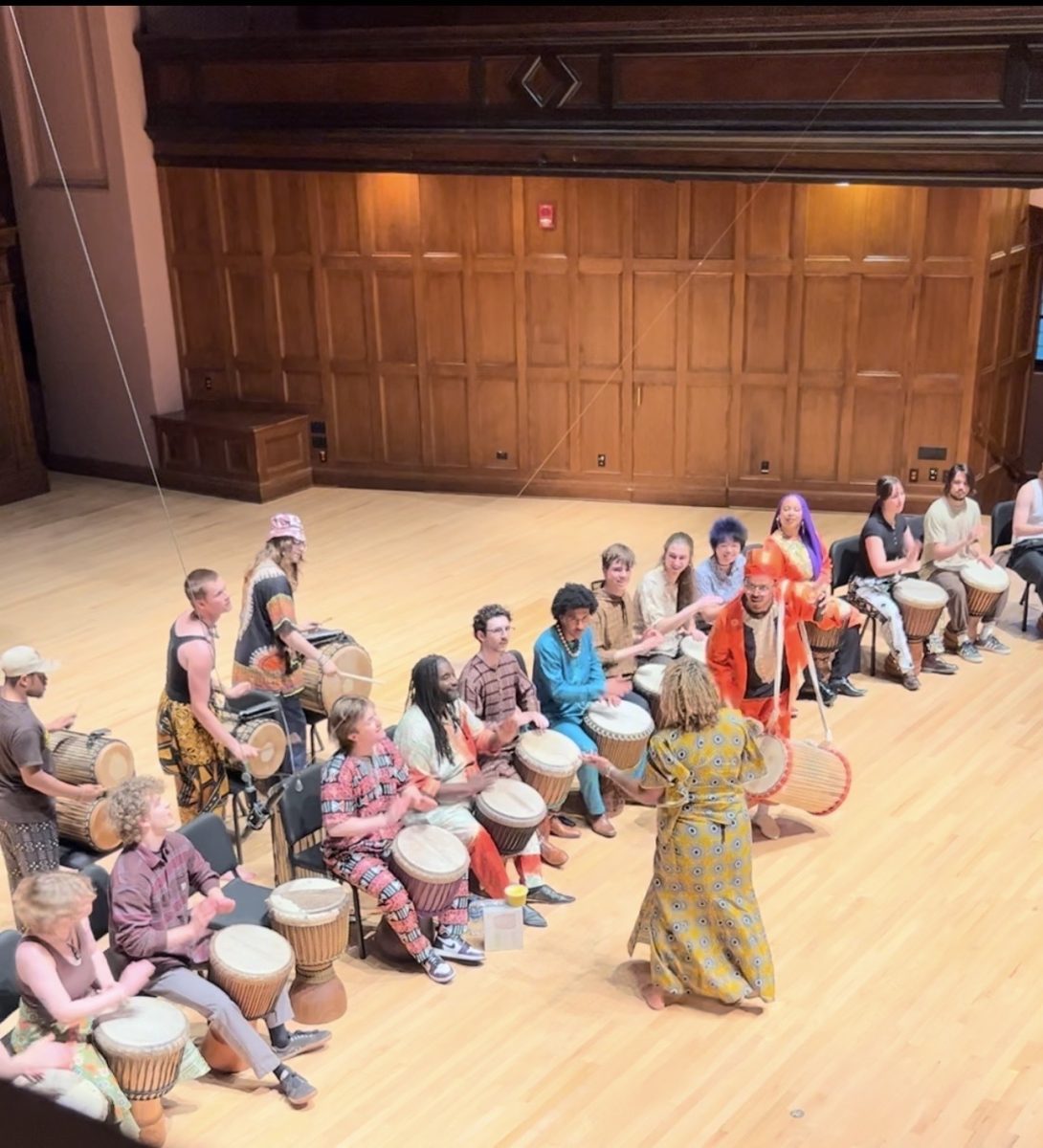Plath Resurrected in ‘Feels Like Hell’
March 4, 2016
College senior Anna Gelman first got the idea to write the play I Do it So it Feels Like Hell when she studied Sylvia Plath in the class Six Poets: 1945– Present, taught by her advisor and Associate Professor of English DeSales Harrison. She took the class during her sophomore year, and now the play, which tells the story of Plath’s life in just over an hour, will finally be performed in Little Theatre Friday and Saturday at 8 p.m. and Sunday at 2 p.m. Gelman did not devise the performance alone, however. About a year ago, she asked two of her close friends if they would join in the creative process with her. College senior Ariana Silvan-Grau, who plays the role of Plath, and College junior Zoë DePreta, who is the assistant director and stage manager of the play, readily agreed.
The play aims to tell the story of Plath’s life beyond her suicide and her darker works, such as the novel The Bell Jar and poems like “Daddy” and “Lady Lazarus.” “I think there are ways that parts of her work are always incredibly difficult and become more difficult at different parts of your life,” Gelman said. “But she was a funny, goofy, strange human. And she wasn’t her death.”
Silvan-Grau agreed. “We wanted to show all of Sylvia. We wanted to show the female artist, not just the woman who stuck herself in the oven.”
While the title of the play comes from a line in “Lady Lazarus,” the story is also told from Plath’s perspective, reflecting the team’s vision to infuse the play with Plath’s own voice and emotions. “I titled it that because I wanted to play with some of her most famous texts,” Gelman said. “I think it is the most Sylvia Plath line in the world, so there’s that, but it also gives a lot of agency within the show. This isn’t the Gwyneth Paltrow movie of Sylvia where it’s just [titled] Sylvia. This is ‘I,’ which is trying to let Sylvia tell her own story instead of a filmmaker who casts Daniel Craig as [Plath’s husband] Ted Hughes.”
DePreta said some of Plath’s more lighthearted work made the poet’s story especially suited to a performance that combined text and theater. “Her work is really theatrical — really stories meant to be told,” DePreta said. “People often think of Sylvia Plath as being really deep, intense and emotional, and a lot of [her work is], but a lot of it is not. A lot of it is really whimsical and fun and that is another element that makes it super theatrical and good to perform — not only just read or spoken but performed and physicalized.”
To get a fuller picture of Plath, the trio also read through thousands of pages from Plath’s journals and many of her letters. “Some of [the journal entries] are really mundane, and some of them are really intense, and getting that sort of spectrum was really important for this process,” Silvan-Grau said. “Just having this sort of art with the two extremes of her life [illustrates that] she was not just this character. She’s a person.”
One of the reasons Gelman asked her friends to write the play with her was so that they could construct a broader interpretation of Plath through their combined perspectives. “They get what I want to create, and they clued into that idea really fast, and it became less about me and more about the three of us very quickly, which is the best because my version of Sylvia Plath isn’t the version of Sylvia Plath,” Gelman said. “But with the three of us combined, our version of Sylvia Plath isn’t all of Sylvia Plath, but it’s our version of what we love about her.”
While Gelman, Silvan-Grau and DePreta each personally connected to different moments in Plath’s life in different ways, the poet’s experience as a student at Smith College in Northampton, MA, struck all of them as very relatable. “She was a person really familiar to us because, even though she went to college in the 1950s, … she went to Smith, which is not that different from Oberlin,” Silvan-Grau said. “She was a liberal arts girl. … She wasn’t that much older than us when she died, and we have a lot of shared experiences with her just by the virtue of being Oberlin students.”
Another way the creators of I Do it So it Feels Like Hell all felt linked to Plath was through their shared identity as female artists. It became one of the play’s main themes. “[We show] what is it like to be a woman and to be competing with men — not only just men, but men you love,” Silvan-Grau said. “Her husband was a poet, and he was her biggest rival. Whether she ever articulated it explicitly that way or not, that was something she had to live with every day.”
Gelman agreed. “He succeeded in her failures. She was [his] secretary and typed all of his work; she was his agent. So all the time she spent working on his stuff instead of hers was time that he succeeded and she wasn’t working.”
While there were many parts of Plath’s life that the three related to, there were also aspects that none of them associated with their own experiences. “It was also really fun to explore the parts of her none of us really identified with,” DePreta said. “We went to England this Winter Term to understand her life from that perspective.” After Plath’s time at Smith and her recovery from her first documented suicide attempt, she earned a Fulbright Scholarship to study at Newnham College, a women’s college that is part of the University of Cambridge. She also met Hughes at a party in Cambridge. During Winter Term, Gelman, DePreta and Silvan-Grau toured Newnham, reenacted activities that Plath wrote about in her journals like biking and visited Plath’s grave. “We went to her grave, and there was a silence that inhabited the entire town in which she is buried that I would have never in a million years understood,” Silvan-Grau said. “Nor would I have been able to understand why she hated that place so much had we not gone.”
Through the process of creating the play, DePreta, Silvan-Grau and Gelman said they all feel like they know Plath personally. They are on a first-name basis with her, as they always refer to the poet as “Sylvia” rather than “Plath” in conversation and throughout the play. Silvan-Grau said Plath traveled with them on their trip to England and throughout the creative process. “When we were applying for the grant we got to travel abroad, I was like, ‘We have to [say], “These four women.”’ We asked one of our advisors to proof our application, and she was like, ‘There are three of you. Who’s the fourth?’ And we were like, ‘Sylvia, duh, come on.’ We feel it’s as much a collaboration between the three of us as it is the four of us. We could not have done it without her.”


















